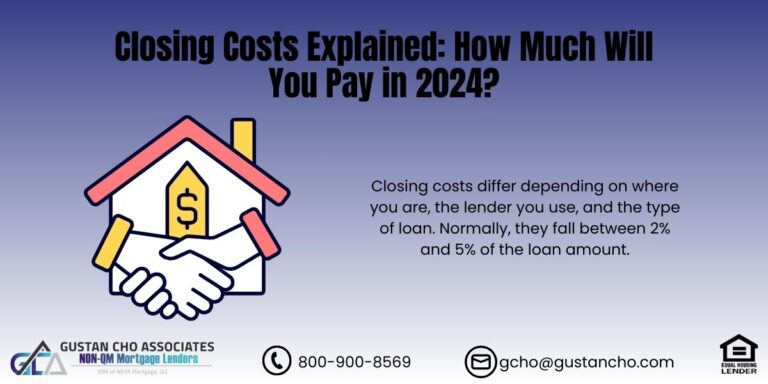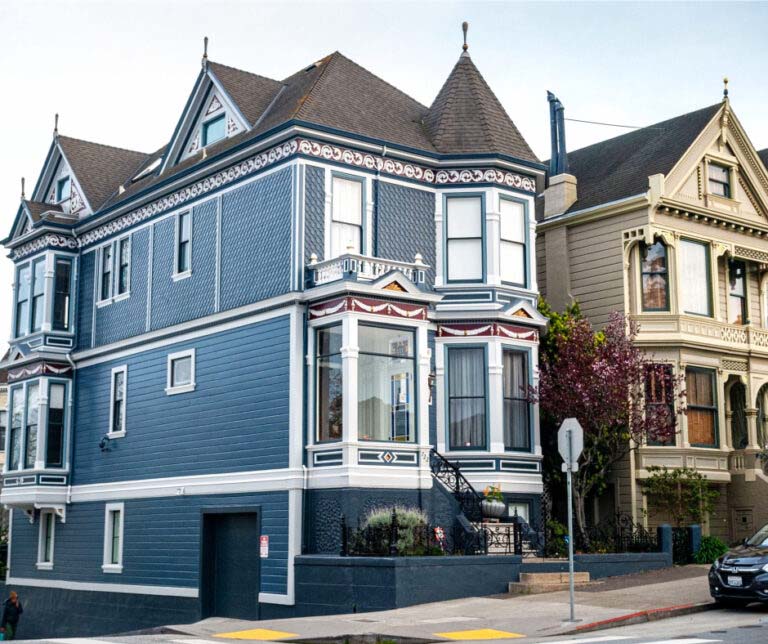Closing Costs Breakdowns on Fees and Charges Home Loans
In this blog, we will cover the closing costs breakdowns on a home purchase transaction. The down payment on a home purchase is a fixed percentage of the purchase price. Closing costs vary depending on the borrower, the property, the city, the county, and the state. Whether mortgage borrowers are refinancing a current home or are purchasing a new home or selling an existing home, there are closing costs.
What Are Closing Costs on a Home Purchase?
Closing costs are fees and costs related to finalizing the transfer of property or transfer of the mortgage loan and can be expensive. Homebuyers need to be concerned not only with the down payment. But also what the estimated closing costs will be.
Homebuyers who barely have enough funds for the down payment can still purchase a home and have either the sellers contribute towards the closing costs. If the sellers do not want to give the buyers a seller’s concession towards a buyer’s closing costs. The home buyer can request the mortgage lender to cover the closing costs via a lender credit towards the borrower’s closing costs.
Understanding Closing Costs Breakdowns

The borrower will get an initial estimate of closing costs called a Loan Estimate. The Loan Estimate replaced the old Good Faith Estimate (GFE). The figures on the Loan Estimates are just overly disclosed numbers. The actual closing costs are on the final Closing Disclosure (CD). The new Closing Disclosure replaced the old HUD-1 Settlement Statement.
Closing Costs Breakdowns on Abstract Fees and Charges
An abstract will be required. An abstract is somewhat of a biography of the biography where it states the ownership history of the subject property. The abstract can be updated from the existing abstract in some cases where the fees and cost of updating an abstract will be lower than ordering a new abstract. Abstract fees and costs are normally paid by the seller of the property.
Closing Costs Breakdowns on Homeowners Insurance
One year’s homeowners’ insurance needs to be paid upfront and it is one of the buyer’s closing cost breakdowns. The mortgage lender will also require an additional two months of insurance payments to be held in escrow.
Down Payment Requirements on Home Purchase
The required down payment by the lender needs to be brought in via cashier’s check ( If under $50,000) or needs to be wired if the amount is over $50,000.
Discount Points and Origination Fees
- Any fees and costs that the lender charges for the origination of a mortgage loan will be part of the closing costs
- Some fees that lenders can charge are origination fees, underwriting fees, or fees that are associated with buying mortgage rates down
Appraisal and Inspection Fees
- Appraisal, home inspection, termite inspection, and other inspection fees are part of the buyer’s closing costs
- Some of these costs and fees are often paid outside closing or prior to closing
Credit Report and Rapid Rescore Fees and Charges
Credit reports can be charged to the borrowers at closing. However, borrowers cannot pay for rapid rescore fees. The lender needs to pay for all rapid rescore fees.
The lender will run credit reports and sometimes rapid rescores while processing and underwriting a mortgage loan. These fees are collected at closing instead of upfront for most mortgage lenders.
Tax Service Costs and Fees
Tax service fees are fees and costs associated when the lender hires a third-party tax service firm to confirm that property taxes are in good standing or when the next installment of property taxes is due so the lender can escrow the upcoming property taxes.
Title Insurance Fees and Costs
The purpose of title insurance is to insure the property title against fraud and liens against the property. Title insurance fees are based on the mortgage loan amount and purchase price of the property. Title insurance is a mandatory requirement for all mortgage lenders. Title insurance premiums are paid for by the home buyers/borrowers.
Title Examination Costs and Fees
A title examination fee may be charged to the home buyer/borrower. Title examination fees are normally charged for the title officer to review any liens to the property, mortgages, defects, mechanics liens, and easements. Many title companies do not charge this fee and consider this service as part of the title insurance charges while others will charge title examination fees as a separate cost.
Deed Preparation Costs and Fees
Deed preparation is comparable to a bill of sale or proof of the sale transaction. The deed preparation fees are normally paid for by the seller.
Deed Tax Fees Charged By States
Deed tax fees are costs normally paid by the seller. It is normally a set dollar amount per $1,000 of the sales price of the property.
Document Preparation and Recording Fees
Recording fees are part of the closing costs and they are fees by the state’s County Recorder of Deeds Office to record the property deeds, notes, and mortgage documents in order to clear and do the title transfer.
Closing Costs Breakdowns on Pre-Paid Interest
- Pre-paid interest is the interest of the mortgage loan that is from the closing date to the date of the borrower’s first mortgage payment date
- The borrower needs to pay this at the time of closing and is part of the borrower’s closing costs
Closing Costs Breakdowns on Mortgage Insurance
- Mortgage insurance is normally collected upfront and is escrowed by the mortgage lender
Closing Costs Breakdowns on Registration Tax
- Depending on the state, states charge a mortgage registration tax which is a tax that is charged for getting a mortgage and it is normally a percentage of every $100 dollar amount recorded
- The buyer is normally responsible for this closing cost
Closing Costs Breakdowns on Property Tax and Insurance Escrow
A mortgage escrow is set up by the mortgage lender for those who put less than 20% down payment which is an escrow account for taxes and homeowners insurance. Lenders normally require an advance of at least two months of property tax and insurance payment upfront at the time of closing.
Closing Costs Breakdowns on Home Mortgages
The closing agent will charge a closing fee for transacting the real estate closing. The borrower of the mortgage loan pays the fee to the closing agent to close the loan and the seller will be charged a separate fee for the closing agent to do the transfer of ownership of the property to the buyer of the property.






